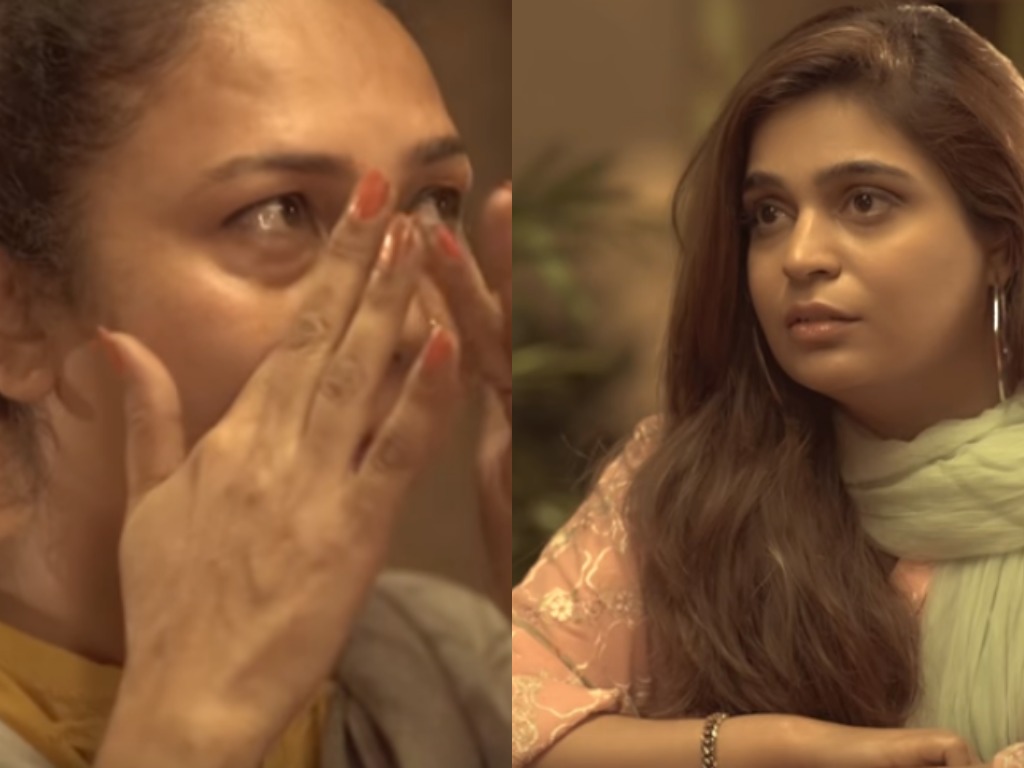
"It's already questionable when people hire children to work at their houses and then on top of that, beating up the same children?" Kanwal says at the beginning of the episode. "How can they justify this by saying they're helping children and their families?"
Kanwal then introduces us to Gulnaz, who explains the issues going on within her home and family life that mentally forced her into child labour. Hailing from Punjab, she reveals that her father was at home and needed help and support from the family members.
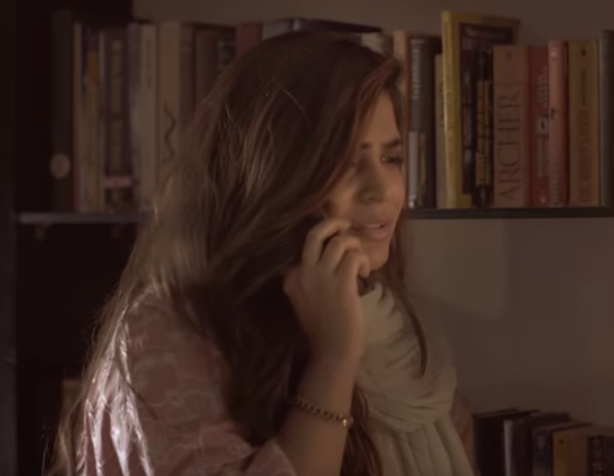 PHOTO: SCREEN GRAB
PHOTO: SCREEN GRAB"My elder sister used to work day and night, so my father told me I should work as well. I used to babysit day and night and do all the work at home," Gulnaz says of her hard-working younger years.
She was forced to begin working at the tender age of 12. Gulnaz reflects upon society at large and how noone considered her age at all while seeing her work as a young child. "They would hire very young girls to work for them. They would be very cruel at the time, wouldn't give proper food. They would keep a separate glass for servants, we couldn't drink water. I would get a holiday after 15 days," she shares.
The heartbreaking story of Gulnaz, which is indeed indicative of many young girls who work day and night as children for wealthier families, continues to touch Kanwal during the interview.
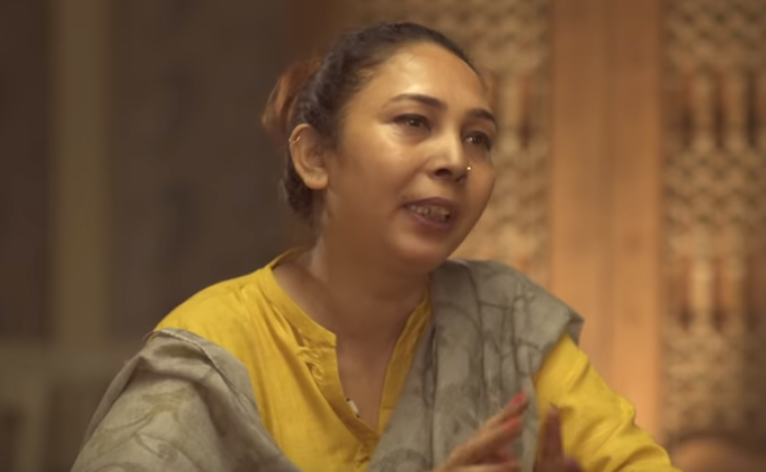 PHOTO: SCREEN GRAB
PHOTO: SCREEN GRABGulnaz explains how her mother would hit her because she wouldn't feel like going back to work after an exhausting 15 days there. She was made to go back to the families home that hired her. The salary was a mere Rs400 for round-the-clock work. Sometimes, the family would only give Gulnaz a day off after a month.
Gulnaz then reveals a horrifying truth about the extent of her suffering as a 15-year-old. "My employers were very cruel! They wouldn't even let me sleep. They would wake me up at 6am and make me work late into the night," she recalls. "If I got tired, they would hit me and I would have to do the work."
The story gets worse. According to Gulnaz, there was another child who used to work outdoors for this particular household. Horrifyingly, the family would beat him so badly that he would be drenched in blood.
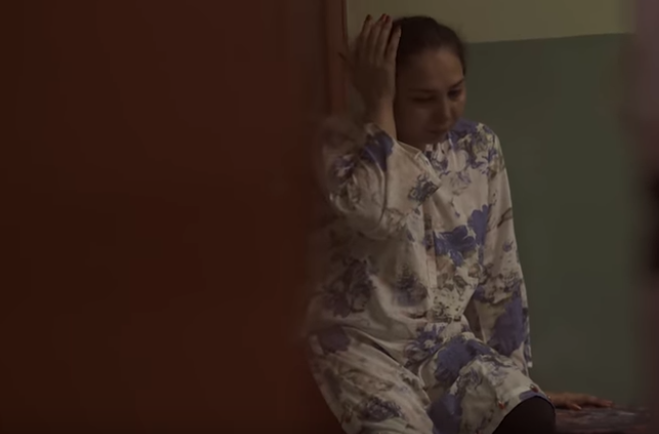 PHOTO: SCREEN GRAB
PHOTO: SCREEN GRAB"We would sit together and cry. He ran away," Gulnaz says to Kanwal. But that meant only even more work for her, as she then had to take on extra chores.
Gulnaz did inform her parents about the violence but they wouldn't believe their own child. Her own father would beat her up with a pipe at home. And when she would be with her employers, they would beat her too.
"Why me? New episode of 'Conversations with Kanwal' explores dealing with cancer
Eventually, she ran away as well. "I still remember, it was a Friday, I told them I was going to the washroom. Everyone was asleep and I walked on. I wasn't familiar with any of the ways. I just kept walking and ran into a bus driver to ask which car goes into Neelam Colony," Gulnaz recounts.
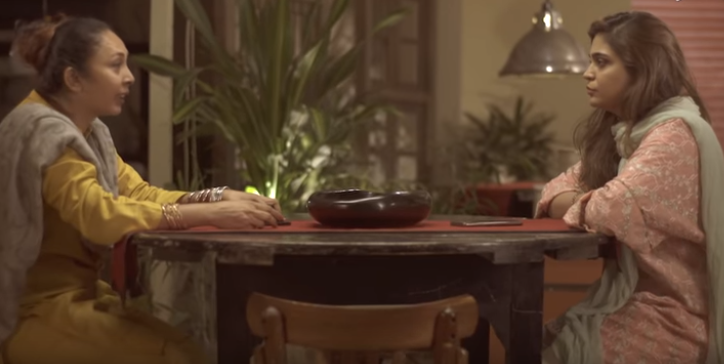 PHOTO: SCREEN GRAB
PHOTO: SCREEN GRABHer family finally believed her and she was allowed to stay home for a month. "My mother said if she wants to study maybe we should let her. My father said no, we need her to work right now."
Gulnaz's father fell ill and her brother did not have a job. She struggled through work but found hope as a cook. Her new workplace allowed her to utilise her cooking skills and were impressed by how she managed to make several dishes in one hour.
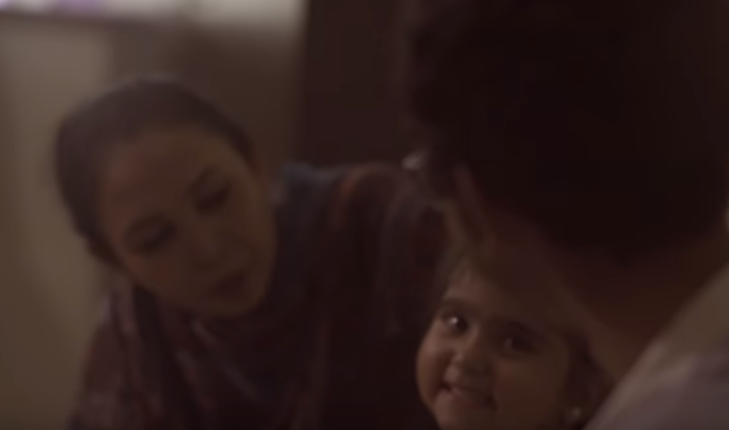 PHOTO: SCREEN GRAB
PHOTO: SCREEN GRABGulnaz finally ended up working at a restaurant. "I couldn't believe where life had led me. It had always been such that I fix one problem and another finds its way to me," she says with tears in her eyes. "Since the last 10 years, I think I am ready and strong enough. I keep thinking that if something happens, what will happen to my family?"
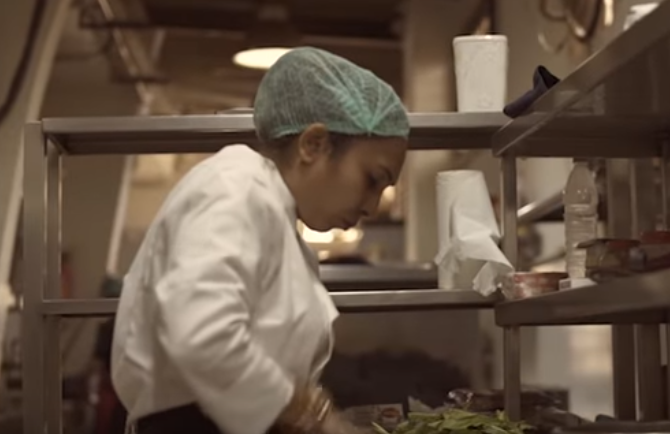 PHOTO: SCREEN GRAB
PHOTO: SCREEN GRABBut Gulnaz's hope is her adopted daughter, who brings her happiness and purpose in life. Is there a happy ending to Gulnaz's story? Yes, and it's worth smiling about.
Watch the full interview:
Have something to add to the story? Share it in the comments below.



1732623521-0/bitcoin-(1)1732623521-0-165x106.webp)


1732620609-0/Untitled-design-(9)1732620609-0-270x192.webp)
1732609662-0/Express-Tribune-(5)1732609662-0-270x192.webp)

1732607724-0/Express-Tribune-(4)1732607724-0-270x192.webp)
1732600740-1/Untitled-design-(1)1732600740-1-270x192.webp)






COMMENTS (1)
Comments are moderated and generally will be posted if they are on-topic and not abusive.
For more information, please see our Comments FAQ